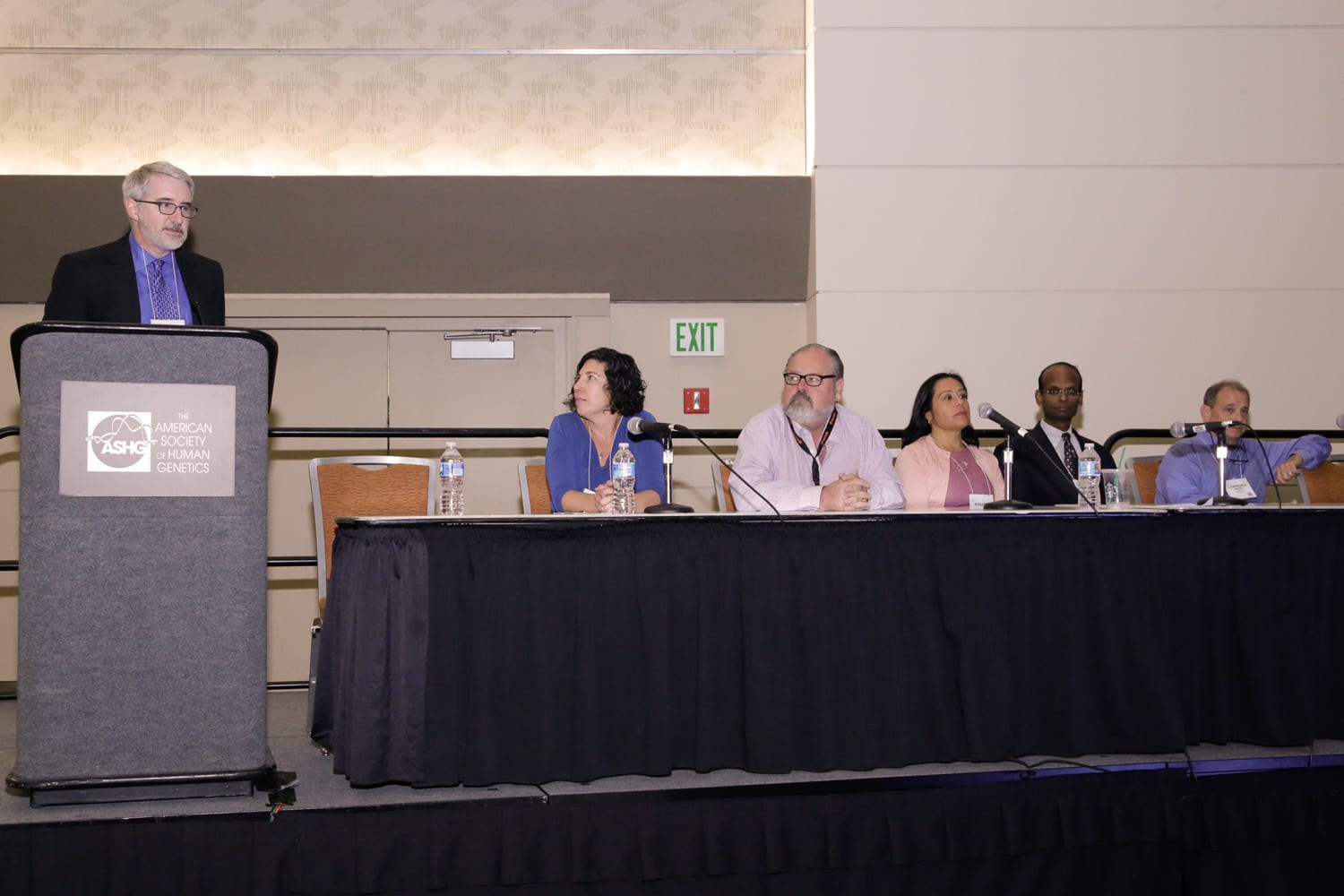Posted by: Derek Scholes, PhD, ASHG Director of Science Policy
I am delighted to announce that ASHG’s statement on germline genome editing was published today in The American Journal of Human Genetics. This statement, written by a workgroup co-led by Kelly Ormond and Doug Mortlock and approved by ASHG’s Board of Directors, gives the Society’s perspective on the use of CRISPR/Cas9 or other similar tools to alter the genome of an embryo or germ cell. Importantly, it incorporates feedback that members provided when the workgroup solicited their perspectives early in the writing of the statement.

The statement makes three main points:
- Concurring with many in the scientific community who have considered this question, it declares that it would be inappropriate at the present to carry out germline genome editing culminating in pregnancy, given the many questions about its safety and the associated ethical issues.
- However, it says we should allow in vitro germline genome editing as part of research to explore possible future clinical applications, and there should be no prohibition on the use of public funds for this research.
- That said, it makes clear that the Society believes germline genome editing should only ever be performed in humans if several important criteria are met. There needs to be not only a compelling medical reason, backed up by a strong evidence base, but also the ethical and policy questions need to have been addressed through a public process.
ASHG did not reach these conclusions alone. Rather, the workgroup that wrote the statement included representatives from the Association of Genetic Nurses and Counsellors, the Canadian Association of Genetic Counsellors, the International Genetic Epidemiology Society, and the National Society of Genetic Counselors. These organizations endorsed the final statement, as did the American Society for Reproductive Medicine, the Asia Pacific Society of Human Genetics, the British Society for Genetic Medicine, the Human Genetics Society of Australasia, the Professional Society of Genetic Counselors in Asia, and the Southern African Society for Human Genetics. The statement is all the more powerful for enjoying support from such major organizations from across five continents, that represent a variety of scientific and clinical perspectives.
This position statement is the latest in a series that the Society issues periodically on a range of genetics policy issues and different uses of genetic information. If there is a topic that you would like the Society to consider addressing, please let us know by emailing policy@ashg.org.
Derek Scholes, PhD, is ASHG’s Director of Science Policy. To learn more about ASHG’s policy priorities and positions, visit the Policy page.
